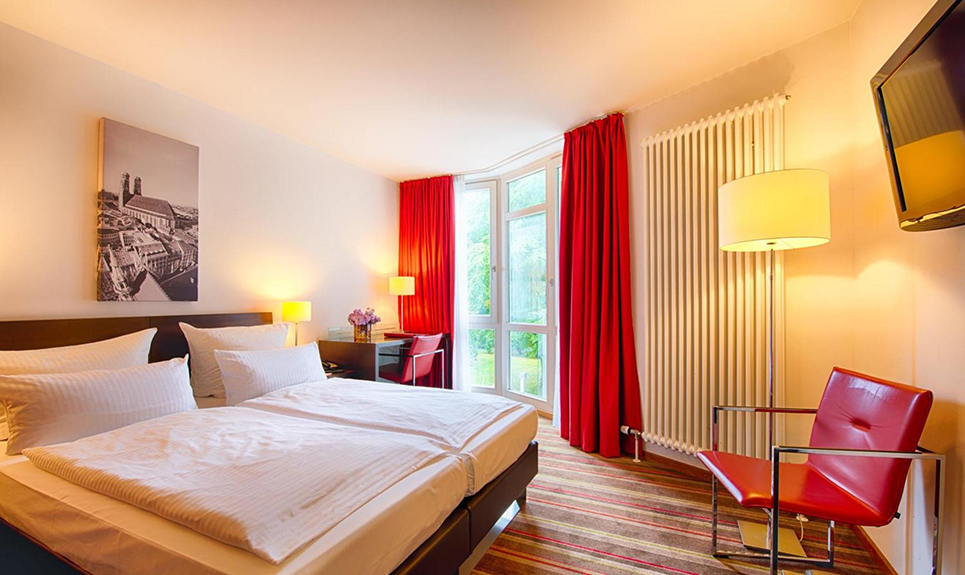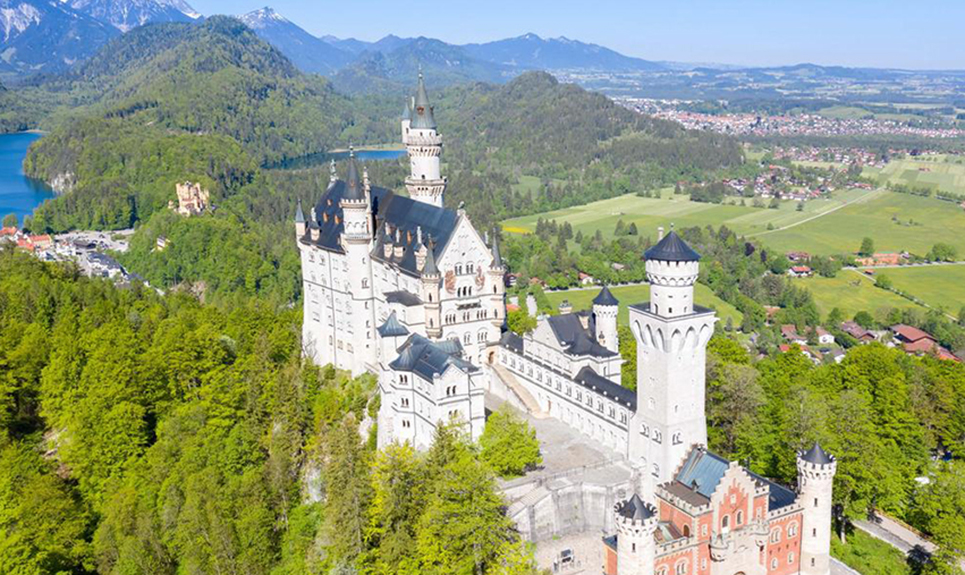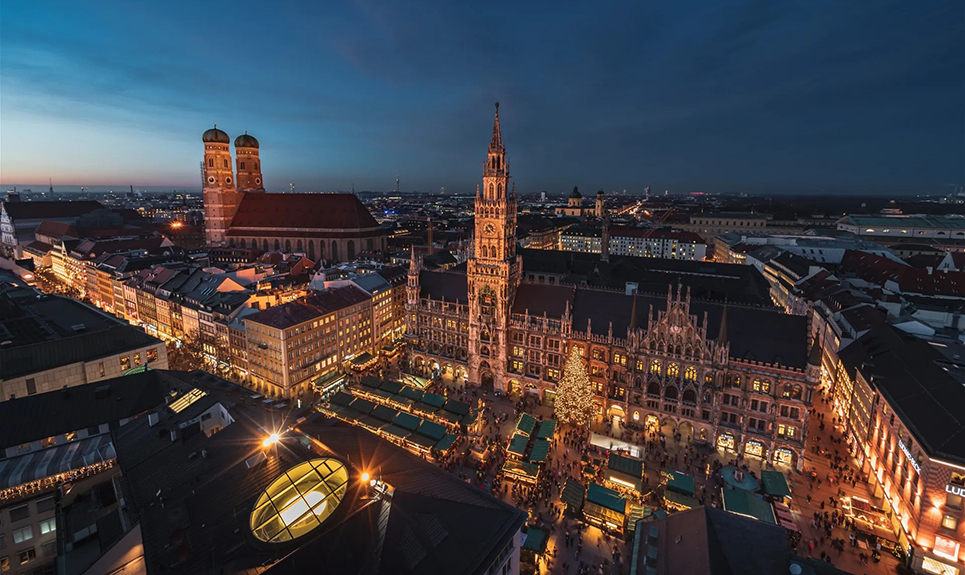
Welcome to Germany, a country known for its stunning landscapes, rich history, and vibrant culture. While Germany may not be the first destination that comes to mind when thinking of beaches and lakes, you’ll be surprised by the breathtaking beauty that awaits you along its coasts and inland waters. From the rugged shores of the North Sea to the tranquil lakes nestled in the Bavarian Alps, Germany offers a diverse array of natural wonders for travelers to explore. Join me on a journey to discover some of Germany’s most spectacular beaches and lakes, where you can immerse yourself in the beauty of nature and create memories to last a lifetime.
Where to Stay in Munich
Are you looking for a good and affordable hotel in the heart of Munich? So was I, but I’m afraid it’s not an easy task. Although Munich is not an especially expensive city, accommodation prices are quite high.
Finally, I decided to stay outside the historic center, and it was a great decision. I ended up booking 3 nights at the Leonardo Hotel & Residenz München. It’s outside the center but only 10 minutes by metro from the main tourist attractions, with a metro stop almost at the hotel’s doorstep. A perfect option at a good price, and a huge plus: many rooms have a small private kitchen.
How to Get to and Get Around Munich
Munich has an international airport connected to many Spanish cities at good prices. I recommend checking the Skyscanner search engine. You can find very economical rates if you book in advance.
The train and bus connections between Munich and numerous European cities and capitals are renowned for their efficiency and convenience. With a plethora of schedules available, travelers have the flexibility to choose the option that best suits their itinerary. During my recent journey, I opted for a night Flixbus from Budapest to Munich and found the experience to be seamless and comfortable. Despite the long journey, the bus provided ample legroom and amenities, allowing me to rest and recharge for my adventures ahead.
Upon arriving in Munich, I was impressed by the city’s extensive public transportation network, particularly its well-connected train system. When it came time to travel to Salzburg, Austria, I decided to take the train, a decision I did not regret. The journey was not only picturesque, with scenic views of the Bavarian countryside, but also punctual and hassle-free. The comfortable seating and onboard amenities made for a pleasant ride, and before I knew it, I had arrived in Salzburg, ready to explore the city’s charming streets and historic landmarks.
My experience traveling between Munich and Salzburg exemplified the convenience and affordability of Germany’s transportation infrastructure. Whether by train or bus, travelers can expect a high level of service and efficiency, making it easy to navigate between destinations and enjoy all that this beautiful region has to offer.
Once in Munich, if you plan to do day trips, I recommend taking the organized tours I’ve suggested. However, for longer routes, it’s best to rent a car. As always, I recommend checking the offers on Autoeurope and Rentalcars. They have the best prices.
When it comes to getting around the city, the best option is to use the metro network. It’s easy and fast, though not particularly cheap. Single tickets are a bit pricey. Therefore, I recommend buying passes. There are several types available. The most interesting ones are the unlimited weekly or daily passes. You can get them from the same machines that sell single tickets.
I chose the weekly pass for 20 euros, and it saved me quite a bit compared to single tickets. Additionally, it also includes access to buses and trams.

Tourist Cards: Are They Worth It?
When planning a short stay of 1 or 2 days in Munich, it may not be economically advantageous to invest in tourist cards, as the proposed itinerary typically covers a limited number of attractions within the city. During my own two-day visit, I found that purchasing individual tickets for the sights I planned to visit was more cost-effective than buying a tourist card. Additionally, since I allocated a third day for an excursion to Neuschwanstein Castle, which is not typically covered by standard tourist cards, it further reinforced my decision to forgo purchasing one.
However, for travelers whose itineraries focus on exploring museums and other attractions within Munich over an extended period, tourist cards can offer substantial savings. These cards often include unlimited access to public transportation, allowing visitors to move effortlessly between sights, as well as additional benefits such as discounted or free admission to museums and attractions. Moreover, some tourist cards also include transportation to and from the airport, providing added convenience for travelers.
In Munich, there are two main types of tourist cards available: the Munich Card and the Munich City Pass. Each card has its own set of advantages and price points, catering to different preferences and budgets. To determine which card best suits your needs, I recommend comparing the features and prices of each on the official Munich Tourist Office website. By carefully evaluating your itinerary and considering the attractions you plan to visit, you can make an informed decision on whether purchasing a tourist card is a worthwhile investment for your trip to Munich.
Experiencing Christmas in Munich

The fame of Germany’s Christmas markets is well-known. And I can confirm they are truly amazing. What a fantasy! Stalls with typical food, traditional mulled wine, crafts, sweets, music, and a whole array of features that lift your Christmas spirit sky-high.
I will tell you all about it in detail soon, but for now, here’s a list of the Christmas markets I liked the most:
- Christkindlmarkt in Marienplatz: The soul of Christmas in Munich in an incomparable setting.
- Kaiserhof at the Residenz: A fantasy Christmas village in a courtyard of the Residenz (entrance opposite Odeonsplatz).
- Medieval Market in Wittelsbacher Platz: Very original, well-organized, and with a great atmosphere.
- Sendlinger Tor Market: Small but very charming.
- Chinese Tower in the English Garden: A quiet market surrounded by nature with traditional games.
Germany’s beaches and lakes each have their own unique charm, from the serene bays of the Baltic Sea to the alpine lakes surrounded by towering mountains. Every destination offers a unique travel experience. Whether you enjoy water sports, hiking, or simply relaxing in a beautiful natural setting, Germany’s attractions have something for everyone. I hope this article provides you with some inspiration and guidance for your trip to Germany, allowing you to enjoy an unforgettable vacation in this beautiful country.

